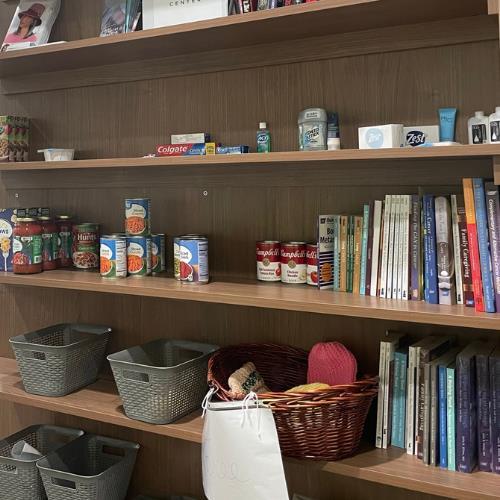
2 minute read
The Role of Clinical Nutrition in Oncology
By Katelyn DeRaps, MS, RD, LD, Clinical Dietitian, Southern Maine Health Care
Consuming a healthy diet is commonly considered in discussions involving oncology care. Not only can a healthy diet help to prevent many cancers, nutritional strategies are integral throughout the entire continuum of cancer, starting at diagnosis, continuing throughout treatment, rehabilitation, and survivorship. Optimal nutrition is necessary to maintain health and strength in order to help fight cancer. Registered Dietitians (“RDs”) are an essential part of the multidisciplinary team involved in the care of patients with cancer.
Advertisement
What does an oncology dietitian do?
As the experts and leaders in human nutrition, Registered Dietitians are qualified to develop and implement strategies to optimize dietary intake for patients diagnosed with cancer. Dietitians help to diagnose, prevent, and treat some common adverse effects of cancer such as malnutrition and unintended weight loss. Each of these have been shown to result in subsequent issues, such as:
Poor ability to tolerate treatments
Decreased physical function and performance
Lower quality of life
Increased risk of surgical complications
Poor wound healing
Increased risk of cancer progression and recurrence
Reduced survival
Increased morbidity and mortality
Improve or maintain body weight and muscle mass
Increase energy and strength
Improve patients’ ability to tolerate treatment
Decrease treatment interruptions and side effects
Aid in healing and recovery
Support immune function
Improve long-term patient outcomes.
How it Works:
Dietitians can help fight against cancer-related malnutrition, including preventing or slowing down the rate of unintentional weight loss, by: a. Helping patients maximize calorie and protein intake, such as: 1) providing recommendations for oral nutrition supplements, meal and snack ideas and recipes; and 2) assisting with the management of tube feeding and/or alternative forms of artificial nutrition if needed (IV nutrition/TPN) b. Helping to manage side effects of cancer treatment. Common side effects during cancer and anticancer treatments can include poor appetite, nausea, vomiting, diarrhea, constipation, taste/smell changes, difficulty chewing or swallowing, etc. Having one or more of these symptoms can prevent patients from being able to obtain the adequate food and nutrients necessary to maintain health and strength to help fight cancer. RDs can provide advice to help manage these eating problems.
RDs can help patients create their own individualized and specific nutritional interventions, which will aim to: c. Identifying potential malabsorption and/or nutrient deficiencies, and providing recommendations for appropriate supplementation.
RDs can also provide the following services: a. Answer questions about nutrition/herbal supplements b. Help manage comorbidities (Chronic Kidney Disease, Diabetes) c. Counseling for cancer prevention and survivorship b. Debunk nutrition related myths
It is strongly encouraged that patients with cancer have the opportunity to work with a registered dietitian to help improve their health and quality of life, and to mitigate the potential detrimental effects that can arise during cancer and its treatment.
To set up a visit with a registered dietitian, patients can request a nutrition referral from their primary care provider or their oncologist.










